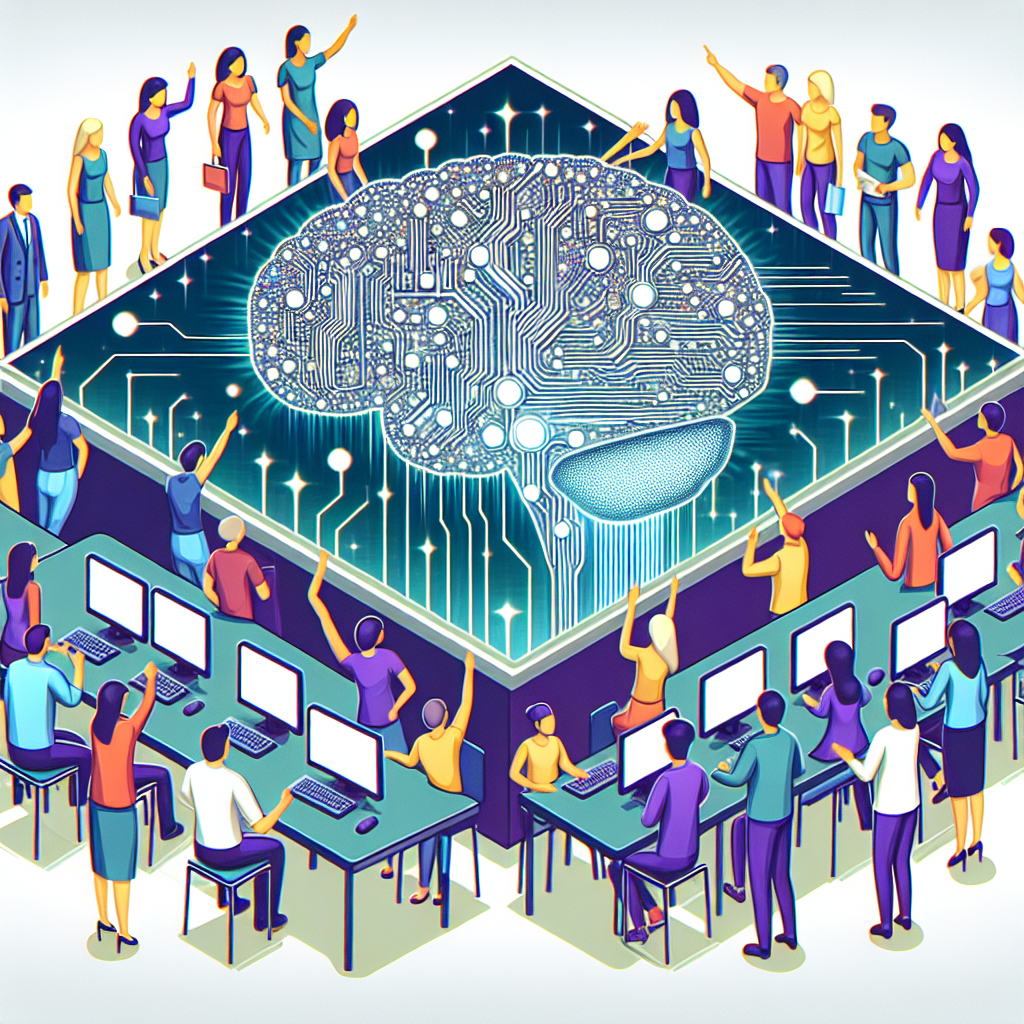Artificial Intelligence (AI) has become a buzzword in recent years, with advancements in technology enabling machines to perform tasks that were once thought to be the sole domain of human intelligence. From self-driving cars to personalized recommendations on streaming services, AI is revolutionizing the way we live and work.
One of the key trends in the AI space is the democratization of the technology, making it accessible to a wider range of users. This shift is enabling individuals and businesses of all sizes to harness the power of AI to drive innovation and growth. In this article, we will explore the concept of AI for everyone and how it is transforming industries and society as a whole.
The Power of Democratization
Traditionally, AI was the domain of large tech companies with the resources and expertise to develop sophisticated algorithms and models. However, the landscape has changed dramatically in recent years, with the democratization of AI making it more accessible to a wider range of users. This shift has been driven by a number of factors, including advancements in cloud computing, the availability of open-source tools and libraries, and the development of user-friendly platforms and interfaces.
One of the key benefits of democratizing AI is the ability to empower individuals and businesses to leverage the technology to drive innovation and growth. By making AI more accessible, organizations of all sizes can harness the power of data to gain insights, make better decisions, and automate repetitive tasks. This can lead to increased efficiency, improved customer experiences, and new revenue streams.
For example, small businesses can use AI-powered analytics tools to gain a deeper understanding of their customers and target them with personalized marketing campaigns. Similarly, healthcare providers can use AI to analyze medical images and detect anomalies more quickly and accurately. In both cases, democratizing AI enables organizations to harness the power of data to drive better outcomes.
Another key benefit of democratizing AI is the ability to foster innovation and collaboration. By making AI more accessible, individuals from a wide range of backgrounds and disciplines can come together to develop new applications and solutions. This can lead to breakthroughs in areas such as healthcare, finance, and transportation, with the potential to transform industries and improve quality of life.
Overall, the democratization of AI has the potential to drive significant social and economic benefits. By making the technology more accessible, we can empower individuals and businesses to harness the power of data to drive innovation, improve decision-making, and create new opportunities for growth.
FAQs
Q: What is AI democratization?
A: AI democratization refers to the trend of making artificial intelligence more accessible to a wider range of users, including individuals and businesses of all sizes. This shift is driven by advancements in technology, such as cloud computing and open-source tools, as well as the development of user-friendly platforms and interfaces.
Q: How can AI democratization benefit businesses?
A: AI democratization can benefit businesses in a number of ways, including enabling them to gain insights from data, make better decisions, and automate repetitive tasks. By harnessing the power of AI, organizations can drive innovation, improve efficiency, and create new revenue streams.
Q: What are some examples of AI democratization in action?
A: One example of AI democratization is the development of user-friendly platforms that enable individuals and businesses to build and deploy AI models without the need for specialized expertise. Another example is the availability of open-source tools and libraries that make it easier for developers to access and use AI technology.
Q: How can individuals benefit from AI democratization?
A: Individuals can benefit from AI democratization in a number of ways, such as through the development of personalized services and experiences. For example, AI-powered recommendation engines can help users discover new content and products based on their preferences, leading to a more tailored and engaging experience.
Q: What are some challenges associated with AI democratization?
A: One of the key challenges of AI democratization is ensuring that users have the knowledge and skills to effectively harness the technology. This includes understanding how to collect and analyze data, build and deploy models, and interpret results. Additionally, there are concerns around data privacy and security, as well as the potential for bias in AI algorithms.
In conclusion, AI democratization is a powerful trend that has the potential to transform industries and society as a whole. By making artificial intelligence more accessible to a wider range of users, we can empower individuals and businesses to harness the power of data to drive innovation, improve decision-making, and create new opportunities for growth. As the technology continues to evolve, it will be important to address challenges such as data privacy and security, as well as ensure that users have the knowledge and skills to effectively leverage AI for the benefit of all.

